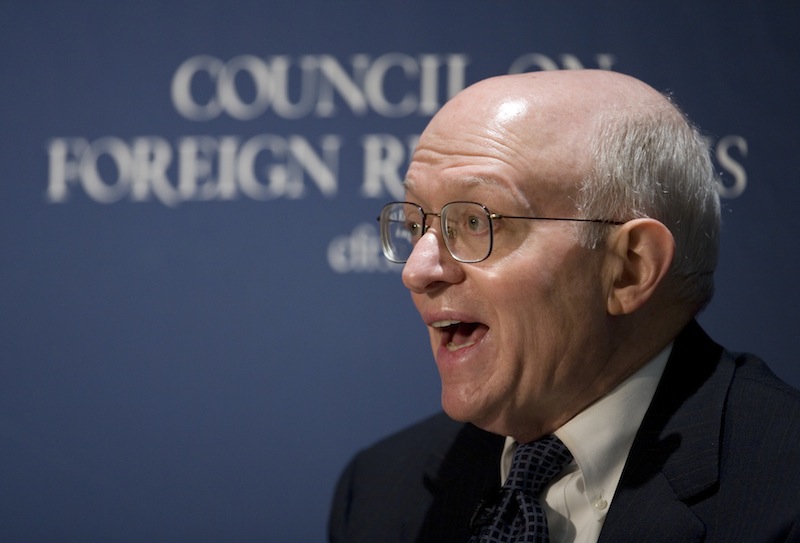A top conservative economist said Tuesday that a default “wouldn’t happen” if the federal debt limit were breached, joining a chorus of conservative voices who are downplaying the consequences of a government default.
“I think it’s a non-issue. I think it wouldn’t happen,” Martin Feldstein, a Harvard University economics professor and former chief economic adviser to President Ronald Reagan, told Charlie Rose on Bloomberg TV. “I think default as such is a scare tactic.”
Feldstein isn’t alone in that belief — some members of Congress have been saying the same thing in recent weeks as Congress is embroiled in a fight over whether to raise the limit — but he’s one of the most authoritative economic figures to take that position.
His reasoning was also familiar: The Treasury Department could prioritize payments if the debt ceiling were hit, making sure bond holders get paid to avoid a default on U.S. government bonds. Social Security beneficiaries could still get their checks. Many others, though, would have to wait.
“If we get to the debt ceiling, and the government doesn’t have the right to borrow more, we still collect taxes, enough taxes to pay the interest on the debt, to pay the Social Security benefits and to pay other things,” Feldstein said. “It can’t pay for everything, but it can certainly avoid defaulting on the debt. It can certainly avoid not paying Social Security checks, and so that’s going to happen.”
“If we actually didn’t pay the interest on the debt, that would have a disastrous effect on our credibility and the interest rates that we pay going forward, and that’s a further reason why I’m sure that if we actually ran into the limits, the Treasury would find a way to make sure that all those interest payments get paid,” he said later. “Then the contractors, the hospitals, the universities and others would understand that for a matter of weeks, they won’t get benefits. They won’t get the cash on time.”
Treasury Secretary Jack Lew already dismissed the notion of prioritizing payments as a means of avoiding economic calamity in a Sept. 25 letter to Congress.
“Any plan to prioritize some payments over others is simply default by another name,” Lew wrote. “There is no way of knowing the damage any prioritization plan would have on our economy and financial markets. It would represent an irresponsible retreat from a core American value: We are a nation that honors all of its commitments.”
Two former Obama administration officials who joined Feldstein Tuesday on Rose’s show elaborated on what Feldstein’s scenario would mean for the economy.
“Some major, major group, either the military, or payments to nursing homes or to the sick, somebody has to not be paid, or to be given IOU’s, or delayed payments. It’s going to be massively, massively disruptive,” said Austin Goolsbee, former chairman of the Council of Economic Advisors. “Even if they figured out a way to pay the debt holders and Social Security, there’d be hundreds of billions of dollars of people not being paid.”
“That’s enough to throw the economy back into recession at that point,” added Peter Orszag, former director of the federal Office of Management and Budget. “So that’s the best-case scenario, and it could be much worse than that.”






